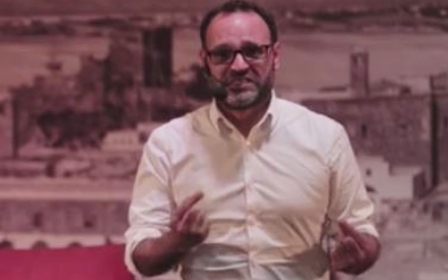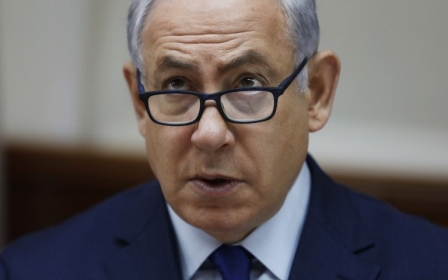Ultra-Orthodox Israeli minister quits over Shabbat train row

An ultra-Orthodox minister in Israeli Prime Minister Benjamin Netanyahu's coalition government resigned on Sunday in a dispute over work on the Sabbath, the Jewish day of rest.
But Health Minister Yaakov Litzman's United Torah Judaism party was expected to stay in the ruling alliance, preserving Netanyahu's slim parliamentary majority.
The dispute is over essential railway maintenance work, which is far less disruptive to commuters on the Sabbath, when no trains run.
Sabbath begins at sundown on Friday and ends at sundown on Saturday.
"In every generation we have known that we keep the Sabbath, this is the covenant between the Jewish people and God," Litzman said in a statement.
"Unfortunately, Israel Railways has turned Shabbat into national maintenance day. Unnecessary work. The fact that there are trains in every country in the world and they manage to complete maintenance work is proof that it's possible."
'Unfortunately, Israel Railways has turned Shabbat into national maintenance day. Unnecessary work'
- Yaakov Litzman, Health Minister
Such work was carried out on Saturday, media said.
Netanyahu was reportedly seeking to persuade Litzman not to resign by offering backing for various measures the health minister and his supporters favour.
The prime minister officially notified Likud ministers on Sunday that he would be holding the portfolio of health minister.
Ultra-Orthodox parties have often played a kingmaker role in Israel's politics. They control 13 seats in Netanyahu's coalition, which has 66 out of 120 seats in parliament.
They demand strict adherence to Jewish law, particularly on the Sabbath, when no work is allowed. Electricity must not be turned on or off and engines must not be operated between sunset on Friday and sunset Saturday.
Analysts have suggested that the crisis could mark the "beginning of the end" of Netanyahu's coalition.
Stay informed with MEE's newsletters
Sign up to get the latest alerts, insights and analysis, starting with Turkey Unpacked
Middle East Eye delivers independent and unrivalled coverage and analysis of the Middle East, North Africa and beyond. To learn more about republishing this content and the associated fees, please fill out this form. More about MEE can be found here.




